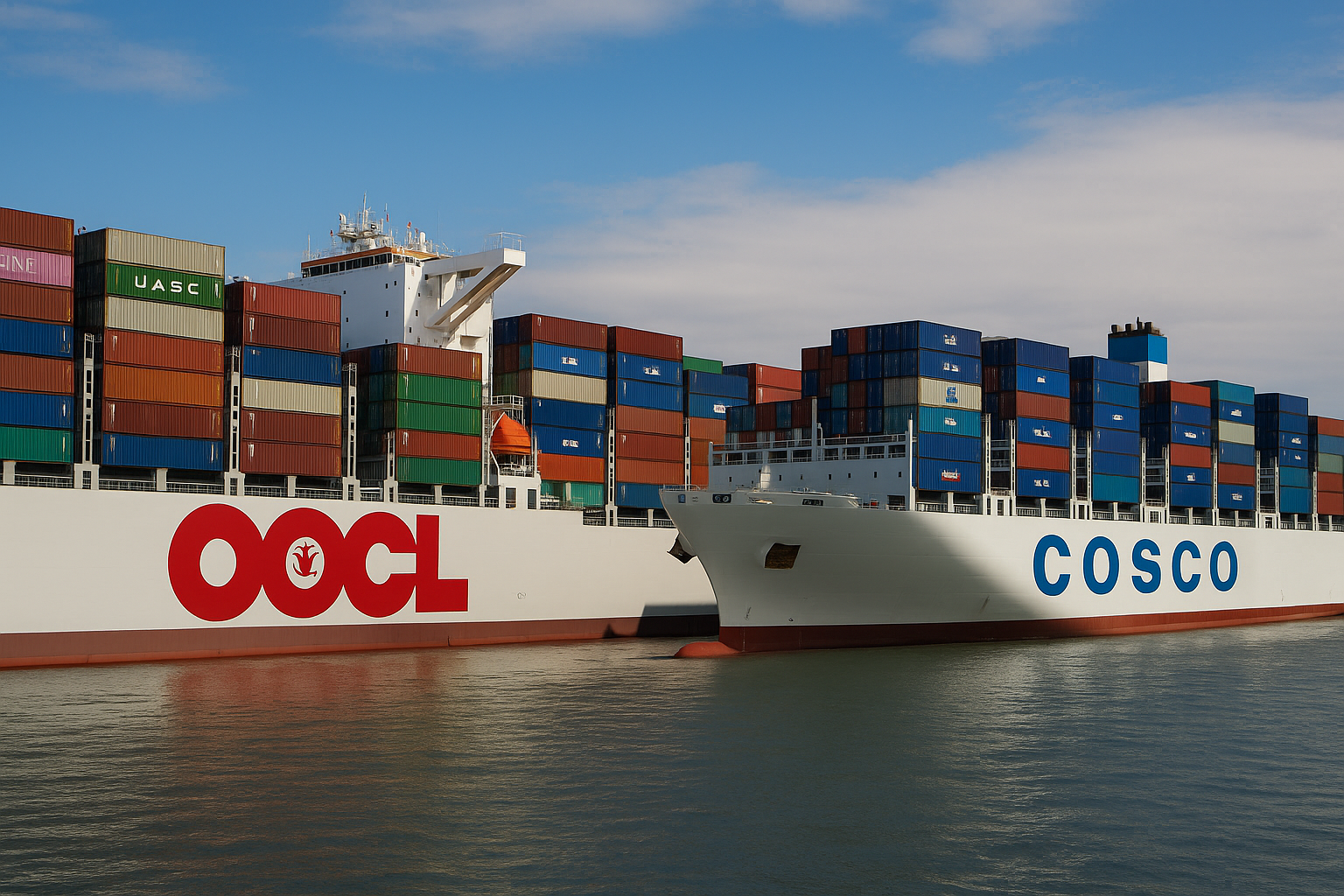US Port Fees Could Cost COSCO, OOCL Over $2.1bn in 2026

Fresh projections from HSBC suggest that COSCO and its Hong Kong-listed unit OOCL could together face more than $2.1bn in port charges in 2026 under the incoming U.S. port fee system targeting Chinese-linked vessels.
The U.S. Trade Representative (USTR) is expected to introduce the fees on October 14, though the final regulations have yet to be released. According to industry sources, U.S. Customs & Border Protection is currently developing a framework to collect the charges. HSBC analysts cautioned that while their main forecasts do not yet factor in the fees, the scale of potential costs highlights the financial strain China’s state-owned carriers may face.
HSBC’s breakdown estimates COSCO’s liability at $1.5bn next year, around 5.3% of its expected 2026 revenues. OOCL, meanwhile, could see a $654m hit, equal to 7.1% of projected turnover. The fees were modeled at $600 per feu on a 10,000 teu ship — more than a quarter of the prevailing Shanghai–US West Coast spot rate.
To mitigate the impact, COSCO and OOCL may rely more heavily on Ocean Alliance partners CMA CGM and Evergreen to operate additional Korean- and Japanese-built tonnage on transpacific routes, while diverting their own Chinese-built vessels elsewhere. HSBC also suggested that rerouting shipments via Canada, Mexico, or Caribbean gateways could become more common — a trend already underway, with the two Chinese carriers recently announcing services to Mexico.
HSBC further warned that adjustments to vessel deployment could temporarily tighten market capacity, as operators retain older non-Chinese-built ships instead of scrapping them. Nearly 93% of vessels aged over 20 years fall into this category.
Orient Overseas (International) Ltd (OOIL), OOCL’s listed parent, acknowledged last month that the anticipated U.S. port fees tied to Chinese tonnage could prove painful. OOCL itself stated that the additional charges would have a “relatively large impact.”
The ripple effects extend beyond container shipping. Global fleet realignments are already evident in the chartering of transatlantic tankers and bulk carriers, with Chinese-built ships increasingly shifted to other regions in anticipation of the U.S. measures.